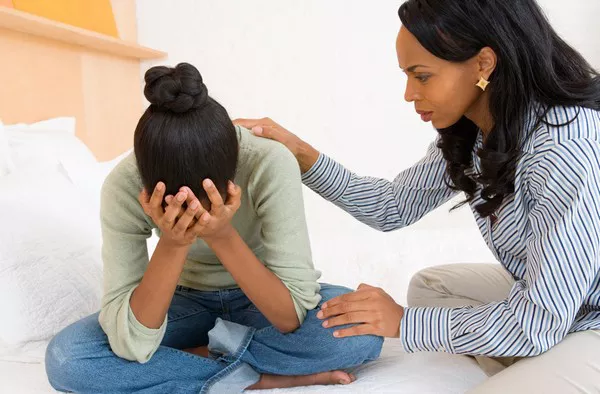Colorado Springs, Colo. — Griffith Centers, a nonprofit organization that has been providing services in Colorado Springs for 25 years, is set to expand its reach by creating what President and CEO Tania Sossi describes as “an ecosystem of mental and behavioral health services” for troubled children and their families.
The expansion involves remodeling two large buildings east of downtown, where the Northglenn-headquartered organization owns nearly the entire block. This will allow Griffith Centers to add new programs and serve more clients, Sossi said.
“We’re excited about this community center for youth and families because we’ll be able to do so much more,” Sossi stated.
Communities continue to see high demand for children’s mental health care in the post-pandemic era, Sossi noted, with increased levels of anxiety, depression, suicidal thoughts, and criminal activity among youth.
“These issues have had huge impacts on the community and individual families,” Sossi explained, “and parents are struggling with how to manage these behaviors.”
Griffith Centers will close its longtime community outpatient office at 3055 Austin Bluffs Parkway and relocate all services by August to buildings and homes on the centralized block it owns on North Farragut Avenue.
The organization offers outpatient and residential behavioral and mental health treatment programs for children who have been removed from their homes and placed with its foster care agency, children involved in the Department of Human Services system, juvenile justice cases, truant students, and those needing individualized education.
The top floor of one of the Farragut Avenue buildings is being transformed into an outpatient community center for children and families, while the lower floor will offer day services and classes for adults with intellectual and developmental disabilities.
Another large building across the street, the Griffith Opportunity School for youth, is being remodeled to include safety and security upgrades, sensory considerations, and contained classes on one level. The co-ed elementary and secondary school accommodates up to 25 students.
“Most of the children have an IEP (Individualized Education Program) but can’t be mainstreamed into traditional schools and need a higher level of support,” Sossi said.
Griffith clients typically range from ages 12 to 19, but Sossi mentioned that children as young as 1 year old can benefit from attachment-based therapy to reunite with their families.
The organization also operates residential, congregate foster homes locally, with the goal of preserving and reunifying families.
“We work a lot in our community with kids in the court system who have anger, violence, suicidal ideation, and anxiety,” Sossi said. “We’re really trying to make an impact on our youth.”
The program for adults with intellectual and developmental disabilities includes culinary skills training, with gardening and cooking in the kitchen at the Colorado Springs location.
Additional programs at the Colorado Springs site will include:
- Treatment for substance abuse
- Teen groups such as parenting and anger management classes
- An anti-truancy track with a career and life skills curriculum
- Therapeutic support for local schools
- A psychiatric clinic with inpatient and outpatient services, a psychologist evaluator, and full-time nursing
- Telehealth services, particularly for rural communities
- The first-in-the-state overnight respite care program for families of adults with intellectual and developmental disabilities
Building the community center will cost $650,000, with an additional $100,000 needed in donations for interior renovations, Sossi said. The cost of renovations to the Opportunity School is still being calculated.
The organization aims to increase the number of therapists system-wide from 83 to 150 by the end of 2025, Sossi noted.
Founded 97 years ago by educator and children’s advocate Emily Griffith, the organization now has offices in metro Denver, Colorado Springs, Greeley, Grand Junction, and soon, Buena Vista. Services in Colorado Springs began in 1999 with a contract between Griffith and the now-defunct organization Chins Up. The two organizations merged in 2002 under the Griffith name.
“We’re really trauma-driven,” Sossi said. “We still have fidelity to Emily Griffith’s vision and aim to increase services to meet community needs.”
Before the COVID-19 pandemic, Griffith Centers assisted 2,000 families per week; today it’s about 1,200 system-wide, with approximately 250 clients using the Colorado Springs office.
“Our goal is to work with 800 youth and families by the end of 2025,” Sossi said of the Colorado Springs location.
Related topics:


























